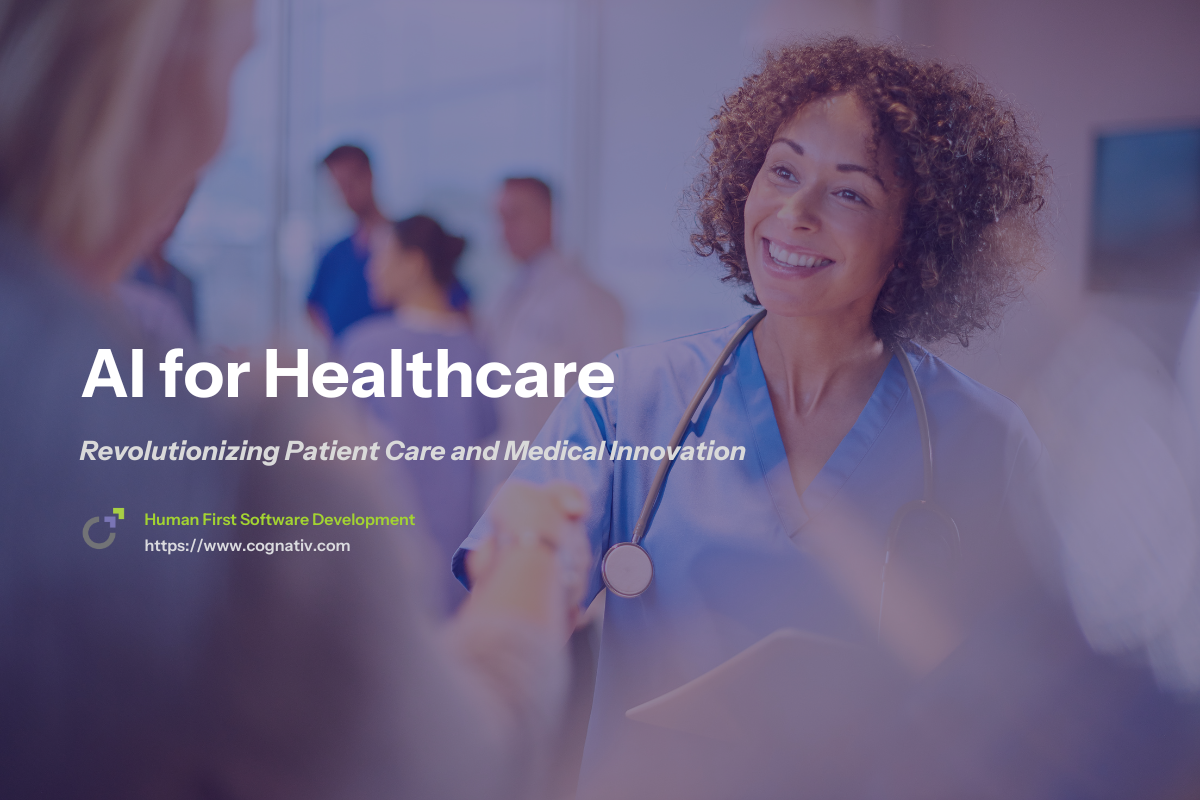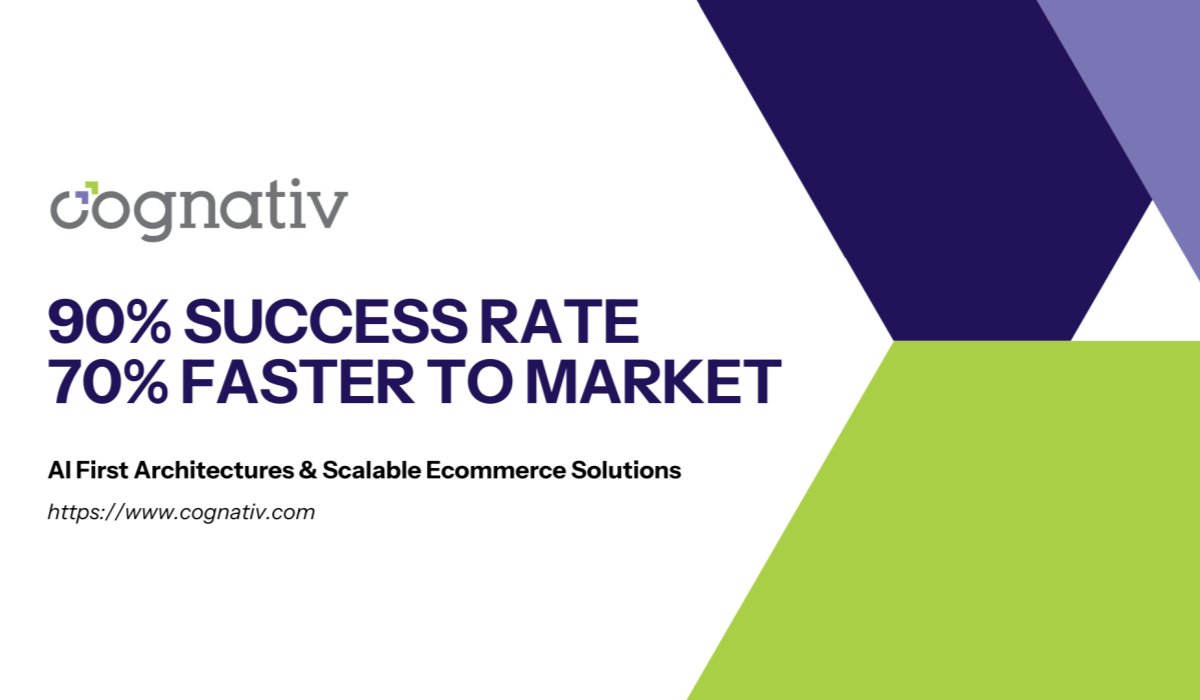AI for Healthcare: Revolutionizing Patient Care and Medical Innovation
The healthcare industry is undergoing a profound transformation. Artificial intelligence in healthcare is no longer a future concept—it’s an operational reality reshaping how healthcare systems deliver care, manage medical data, and drive innovation.
From real-time analysis of electronic health records and medical imaging to accelerating drug discovery and enabling digital health ecosystems, AI tools are becoming essential infrastructure. The World Health Organization has highlighted the potential of AI to improve patient safety, reduce healthcare costs, and enhance clinical decision-making globally.
Healthcare providers, research institutions, and health systems are integrating AI technologies to improve patient outcomes, optimize clinical workflows, and advance medical research.

AI in Clinical Workflows and Decision Support
Clinical workflows are the backbone of modern healthcare delivery. AI systems are being integrated into these workflows to offer decision support that enhances patient outcomes and improves patient safety.
-
Machine learning models analyze vast volumes of healthcare data from electronic health records, enabling earlier and more accurate disease diagnosis.
-
AI-powered clinical decision support systems (CDSS) deliver treatment recommendations and alerts, reducing medical errors and ensuring care consistency.
-
By automating administrative tasks and streamlining documentation, AI solutions free healthcare professionals to focus more on clinical practice and direct patient care.
The impact is measurable: improved diagnostic accuracy, reduced medical errors, enhanced operational efficiency, and a stronger foundation for evidence-based care.

Accelerating Drug Discovery and Development
Drug discovery is one of the most resource-intensive areas in the healthcare sector. AI models are transforming this landscape by analyzing medical data, identifying drug targets, and predicting outcomes at unprecedented speed.
Key advancements include:
-
Predictive modeling to identify promising drug compounds earlier in the research process
-
Simulation of drug efficacy and safety, improving clinical trial design
-
Reduction in R&D costs through faster data analysis and AI-driven risk modeling
Pharmaceutical companies and biotech innovators are adopting AI solutions to shorten development cycles, improve hit rates in early drug discovery, and bring therapies to patients faster.

AI Solutions in Clinical Settings
In clinical settings, AI systems are increasingly embedded in everyday medical practices. Computer vision, machine learning, and natural language processing are driving a wave of intelligent diagnostic and patient engagement tools.
-
AI-powered medical imaging analysis enhances early disease detection, from identifying breast cancer lesions to spotting pulmonary anomalies.
-
Automated triage systems help prioritize patient care, ensuring timely interventions.
-
AI-driven chatbots provide 24/7 patient support, answering medical questions, collecting patient data, and improving care coordination.
By integrating these tools with existing clinical workflows, healthcare providers are enhancing patient care while improving operational performance.

Digital Health and Telemedicine
The rise of digital health and telemedicine has expanded access to care and increased flexibility for both patients and healthcare professionals. AI plays a central role in enabling these capabilities.
-
Telemedicine platforms powered by AI support virtual consultations, remote monitoring, and personalized care plans.
-
Wearables and mobile health applications track vital signs and patient behavior, feeding healthcare AI models that can anticipate risks and recommend interventions.
-
AI solutions automate administrative processes in telehealth, reducing costs and expanding reach.
This convergence of AI technology and digital health infrastructure is redefining healthcare delivery beyond hospital walls—shifting toward continuous, patient-centered care.

AI Adoption and Regulatory Challenges
While AI adoption in healthcare is accelerating, it comes with significant regulatory and ethical responsibilities. Healthcare organizations must ensure that AI systems are transparent, explainable, and aligned with patient safety standards.
-
Data protection and patient privacy are paramount, given the sensitivity of healthcare data.
-
Regulators, including the U.S. Food and Drug Administration and European AI oversight bodies, are defining frameworks to govern AI in clinical practice.
-
The AI Act introduces guidelines for ensuring fairness, explainability, and safety in AI systems used across healthcare settings.
-
Health systems are developing AI governance structures that ensure proper oversight, documentation, and accountability.
Addressing these challenges early on allows healthcare leaders to integrate AI responsibly, safeguarding patient trust and system resilience.

Precision Medicine and the Future of Healthcare AI
The future of AI for healthcare extends far beyond automation. It’s about enabling precision medicine, supporting clinical trials, improving population health, and providing predictive care that prevents illness before it emerges.
-
AI algorithms are enhancing early disease detection through continuous analysis of electronic health records and medical imaging.
-
Deep learning models will increasingly drive personalized treatment strategies.
-
AI programs will enable public health systems to monitor health risks at scale and coordinate more agile responses to population-level threats.
-
Integration with medical devices, clinical workflows, and digital health platforms will create a connected healthcare ecosystem.
As AI becomes a core pillar of healthcare delivery, human expertise remains central—AI is not replacing healthcare professionals, but amplifying their capabilities.

Responsible Innovation for Healthcare Leaders
Healthcare leaders face a strategic imperative: to embrace AI not just as a technology, but as an engine for system-wide transformation. Successful integration requires:
-
Investing in AI literacy and training for healthcare professionals
-
Building robust governance frameworks to ensure ethical use
-
Modernizing infrastructure to support AI models at scale
-
Partnering with trusted AI technology providers
-
Maintaining human oversight and patient-centered care
The organizations that lead in AI-driven healthcare will define the future of medical innovation, achieving better health outcomes, improved operational efficiency, and sustainable patient care models.

Conclusion: A New Era of Patient-Centered Innovation
AI is revolutionizing healthcare from the inside out—transforming clinical workflows, advancing drug discovery, expanding digital health, and enabling precision medicine. Its impact spans patient care, operational efficiency, and medical innovation.
With strong regulatory frameworks, ethical oversight, and continued investment, artificial intelligence can elevate healthcare systems worldwide, ensuring safer, more accessible, and more personalized care.
The next generation of healthcare will be intelligent, adaptive, and patient-centered—where AI and human expertise work in tandem to deliver better health for all.


